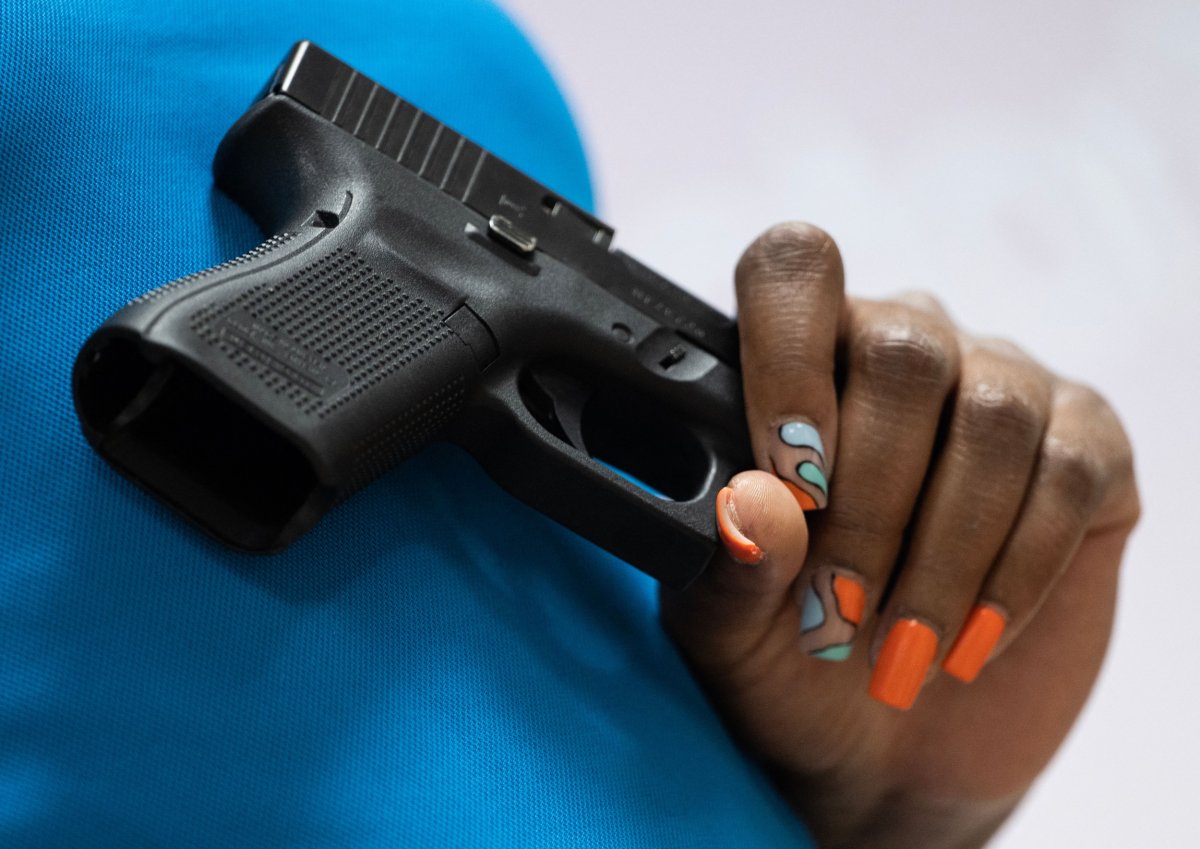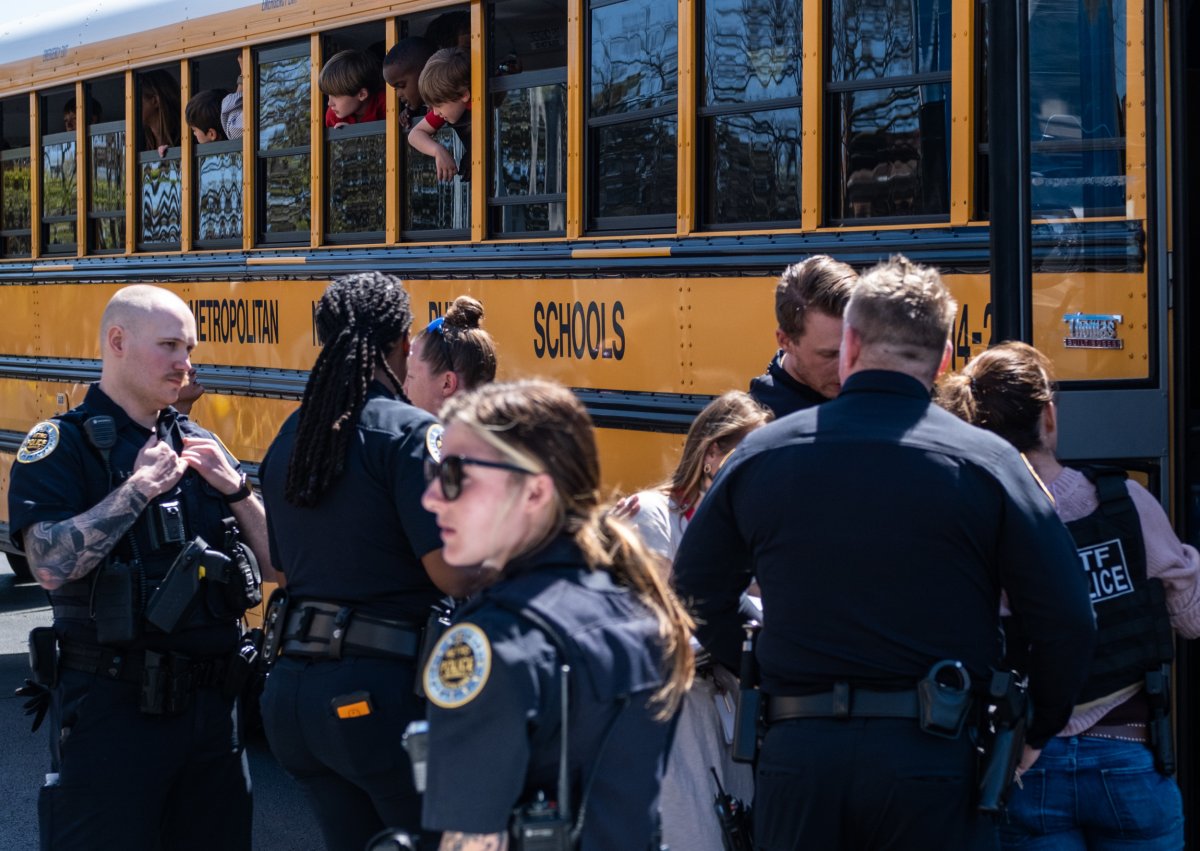- The suspect in Monday's school shooting in Nashville, Tennessee, bucked the typical shooter profile in these types of tragedies, as most mass shooters are men.
- Experts, like Peter Langman, warn against using sex, age or race to identify and prevent school shootings, and instead urge others to focus on the individual's behavior before the shooting.
- Most cases involve individuals who people had prior concerns about, so any expression of intent to shoot should be taken seriously.
The suspect in Monday's shooting at The Covenant School in Nashville, Tennessee, has upended the typical shooter "profile" in these types of tragedies—a deduction that many experts in the field have long warned as being problematic or misleading in cases of gun violence.
Authorities with the Metropolitan Nashville Police Department confirmed on Monday afternoon that the heavily armed person who entered the Christian school earlier in the morning and fatally shot three children and three staff members was a 28-year-old woman, Audrey Hale.
The description is unlike that of the average school shooter. The gunmen in the infamous 1999 Columbine shooting in Colorado, the 2012 Sandy Hook shooting in Connecticut, the 2018 Parkland shooting in Florida, and last year's Uvalde shooting in Texas were all committed by young men.
"The mistake on the part of the public is to assume there is a profile of a mass attacker, which there is not," Reid Meloy, who has served as a consultant for the Federal Bureau of Investigation's (FBI) Behavioral Analysis Unit (BAU), told Newsweek on Monday.

"You might often hear that it's teenage white males who are loners and picked on, but that's really not the case," Peter Langman, an expert on the psychology of school shooters, told Newsweek on Monday. "I think we need to educate the public to get away from thinking there is any type of demographic profile."
A recent study conducted by the National institute of Justice (NIJ) that was published last February found that 97.7 percent of the 172 individuals who engaged in public mass shootings between 1966 to 2019 were men. It also found that the mean age of the gunmen was 34.1 years old and that 52.3 percent were white, 20.9 percent were Black, 8.1 percent were Latino, 6.4 percent were Asian, 4.2 percent were Middle Eastern, and 1.8 percent were Native American.
Data from The Violence Project, a nonpartisan research group, shows that men are responsible for 98 percent of all mass shootings, while statistics from the U.S. Secret Service puts the number of male "mass attackers"—a broader categorization that includes incidents that don't involve a firearm, which account for 25 percent of incidents—at 96 percent. Another list from the FBI shows that of the 42 people who perpetuated an active shooter incident in 2020, three were female. Of the 61 suspects from 2021, only one was female.
Looking more closely at shootings that took place at K-12 schools, a study published in the Journal of Social Psychology last year shows that 95 percent of perpetuators are men, 61 percent are white, and the median age of these individuals is 15.
But while studies show that the majority of these gunmen are men, experts warn against using sex, age and race from seeking to identify and prevent school shootings.
"Certainly, the overwhelming majority of perpetrators are male, but people need to know that if there are warning signs from someone who happens to be female, [those signs] better be taken seriously because a female is capable of carrying out such an attack," Langman said. "It's very rare, but it has happened."
The perpetrator in the 2018 YouTube headquarters shooting in San Bruno, California, was a 38-year-old woman identified as Nasim Najafi Aghdam and the perpetrator in the 2006 Goleta, California, postal facility shooting was a 44-year-old woman identified as Jennifer San Marco. Najafi Aghdam wounded three people by gunfire and San Marco shot and killed six people. Both died from self-inflicted gunshot wounds.
Hale who fatally shot six people on Monday was armed with two assault-style rifles and a handgun, according to local law enforcement. She was later shot and killed by police.
"The shooting today is a stark reminder that mass shootings are not exclusive to men," Jillian Peterson and James Densely, who run The Violence Project, told Newsweek in a statement. "However, if we look specifically at K-12 school shooting cases in our database, the perpetrators were 100% male. Most were current or former students of the schools they targeted."
However, Mark Follman, the author of Trigger Points: Inside the Mission to Stop Mass Shootings in America, noted that there was a woman who opened fire at a Chicago elementary school in 1988 and a female professor who attacked the University of Alabama in 2010.
"There have also been several thwarted school-shooting plots in recent years, unknown to the public, involving female teen suspects," Follman told Newsweek.
More important than age, gender, race or social reputation (i.e. whether a shooter had friends or didn't) is the behavior of the individual that was observed before the shooting, Langman said.
"We really have to get people to think beyond the concept of a profile and really focus on behaviors of concern," he said. "In most cases, it's in the aftermath of the attack—when people start asking questions and doing investigation—that it turns out one or many people had concerns about this individual."

"It could be from the class president or it could be from a loner, but it doesn't matter," Langman, who has long made this case on his SchoolShooters.info database, added. "If someone's talking about bringing a gun to school that needs to be taken seriously."
Both Meloy and John Van Dreal, a school psychologist and the retired director of security, safety, and risk management for the Salem-Keizer School District in Oregon, agreed that any expression of intent to shoot is the most important key for preventing school shootings.
Rather than trying to pinpoint a profile for these gunmen, Van Dreal told Newsweek on Monday that its much more critical to identify "circumstances and situations that indicate behavior and actions that are directed toward targeted violence."
"Neither gender nor any other characteristic of a school shooter is predictive—but the good news is that all of these attacks are preceded by warning behaviors, and in many cases these are detectable and create opportunities for intervention before it's too late," Follman said.
Langman added: "In the case today, I don't know if there were any such warning signs. But in most cases, somebody knew something."
Update 3/27/2023, 5:04 p.m. ET: This article has been updated with comment from Mark Follman.
Update 3/27/2023, 4:50 p.m. ET: This article has been updated with additional information.
Uncommon Knowledge
Newsweek is committed to challenging conventional wisdom and finding connections in the search for common ground.
Newsweek is committed to challenging conventional wisdom and finding connections in the search for common ground.
About the writer
Katherine Fung is a Newsweek reporter based in New York City. Her focus is reporting on U.S. and world politics. ... Read more
To read how Newsweek uses AI as a newsroom tool, Click here.








